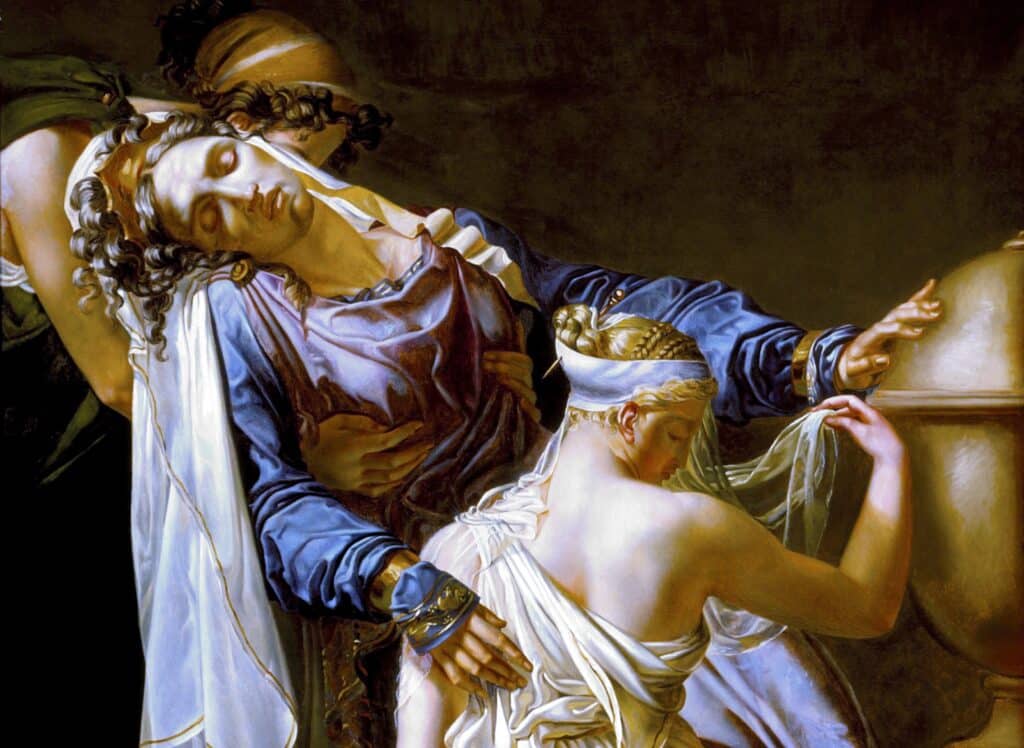

Ancient Greek mythology is one of the most popular and well-known mythologies of any ancient civilization, inspiring millions of people around the world and shaping modern pop culture across generations.
Greek mythology has evolved significantly from its ancient roots. It has managed to become an important source of inspiration in modern entertainment, influencing pop culture with its ageless trends.
From popular films and TV series to best-selling books and theatre plays, audiences all around the world are still drawn into the tales of gods, heroes and imaginary animals.
Ancient Greek mythology has seen a spectacular comeback in recent years across a variety of media channels, enjoying a massive resurgence in popularity.
While television and film companies scramble to bring mythological myths to life, publishing firms are producing contemporary and twisted versions and retellings of the millennia-old stories of ancient Greek mythology. With over 2.6 billion views of #greekmythology footage on TikTok, the genre has gained significant popularity among younger generations, particularly the millennials and Gen Zs.
Greek myths have also been adopted by the entertainment industry with never-before-seen fervour as audiences crave new versions of traditional tales. Future initiatives like Disney+’s upcoming Percy Jackson and the Olympians series and Netflix’s dark comedy Kaos, which stars Jeff Goldblum as Zeus, show how popular these classic tales are and how much people from all over the world resonate with them.
These adaptations are especially creative reimaginings with twists that appeal to modern audiences and boost their interest in them, as they adopt a more modern approach.
It is widely accepted that ancient Greek mythology offers a vast source of inspiration with themes that still have an impact on contemporary storytelling, shaping our modern culture in direct and indirect ways to this day.
For example, Greek playwrights were the first to identify the tragic hero, who is still a key character type in modern fiction of every form, including theatrical plays, movies and TV series. These mythological elements and story models have become a direct source of inspiration for characters with seemingly different characteristics such as Batman and Hamlet, for example.
What sets ancient Greek mythology and its tales apart from other sources of inspiration in modern days is that on top of being entertaining, Greek mythology has instructional value at its core.
These fascinating and intriguing tales of the Greeks provide us with a deep understanding of foundational topics of human life, including morality, human nature and the difficulties of emotional states and motives.
The stories of ancient Greek mythology also provide viewers with a distinctive perspective on the universal themes of love, conflict, and human growth through perseverance and strength.
The impact of ancient Greek mythology goes well beyond conventional media too.
It continues to influence areas such as language, fashion and even advertising. Greek mythological vocabulary is frequently the source of common idioms, while mythical imagery is used by brands such as Versace.
Why are these old tales so captivating, you might ask. Maybe it’s their ability to capture basic human emotions and the fundamental elements of the human psyche. Greek myths continue to have an impact on people of all ages and cultures, whether it is via the pursuit of love, the fight against irreversible fate, or the investigation of human potential.
Greek mythology continues to be a source of inspiration for pop culture as it evolves.
